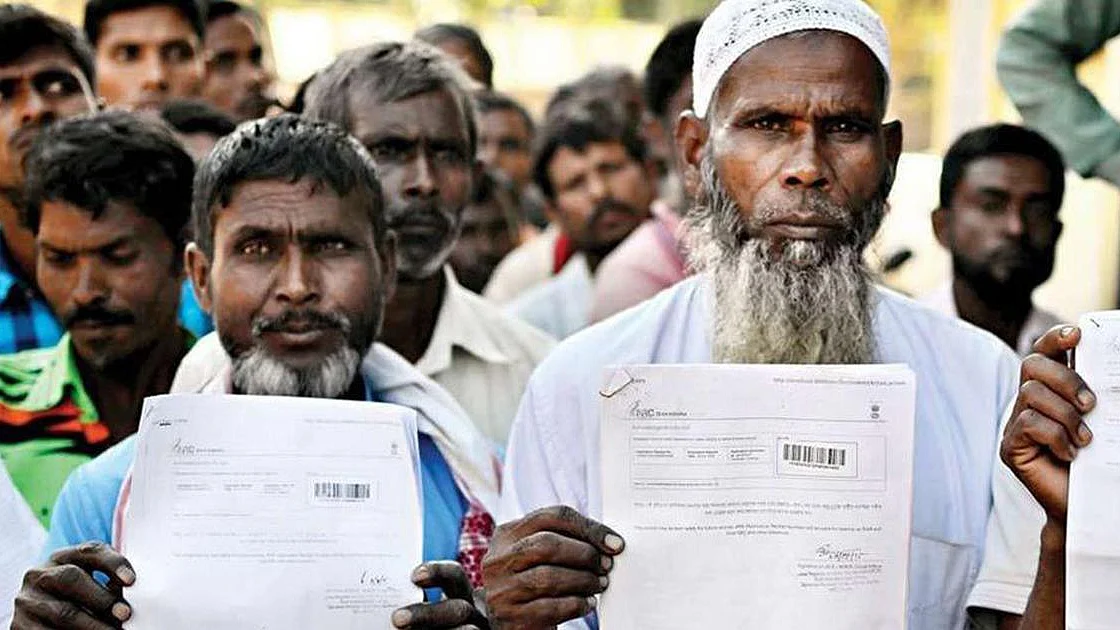Miyah poetry: The anguish of a besieged community
Many of these poems are reflecting the anguish of the Muslims who are labelled as Bangladeshis and face the ignominy of being called foreigners

A FIR was registered against 10 Assamese poets on July 10, 2019. These poets, mostly Muslims, have been pioneers and are leading lights of what has come to be known as Miyah Poetry.
One sample, by the initiator of this trend, Hafiz Ahmed, goes like this:
“Write, Write Down, I am a Miya,
My serial number in the NRC is 200543,
I have two children
Another is coming Next summer.
Will you hate him, As you hate me?”
Many of these poems are reflecting the anguish of the Muslims who are labelled as Bangladeshis and face the ignominy of being called foreigners. These poems are in different local dialects: some in Assamese, and some in English.
The FIR states: “By these lines the accused persons are creating an image of our state as a barbarian state in the eyes of the world which is a threat to the security of the nation in general and Assam in particular…”
Some critics said that this poetry is an insult to Assamese language since it uses local dialects. In the face of this criticism, Ahmed apologized. He also stated that since he had been a part of a movement to promote Assamese language, there was no question of his being against it.
The episode has raised multiple issues. To begin with, all this is taking place in the backdrop of the citizenship drive in Assam. Assam had a significant Muslim population at the time of partition, to the extent that Jinnah wanted Assam to be part of Pakistan. On top of that, Assam saw multiple migrations of both Hindus and Muslims at the time of India’s partition in 1947 and later with the formation of Bangladesh. There has been a continuous flux of population, and the immigrants were both Hindus and Muslims.
The ongoing NRC process in Assam has affected nearly 40 lakh people who do not possess relevant documents, and their names are missing in the first list. The Citizenship Amendment Bill talks of granting citizenship to Sikhs, Jain and Hindus but not to Muslims.
As the final list of NRC is scheduled to be out on August 31, there is tension in the air among Muslims who fear exclusion from it. The recent case of Md. Sanaullah, a retired army officer, being sent to the detention camp shows the possibility of very legitimate citizens being expelled and deprived of their fundamental rights.
BJP’s intent of extending the NRC exercise to the whole country is fraught with the possibility that citizenship may be linked with religion.
What does this Miya Poetry, the poetry of protest reflect? To begin with, it is very clear that it is not against Assamese or against Assam. Mostly it is an expression of anguish and pain of Muslims. The local citizens have been regularly facing the charge of being ‘foreigners’. This includes mostly Muslims.
First the whole exercise of ‘Doubtful voter’ D Voter, then the Foreigners Tribunal pushing people into detention camps, and this exercise of National Register of Citizens. The citizenship of people has been on a continuous Test.
While Hindus, Bangla speaking, are also targeted, there is a respite for them in the Amended Citizenship bill which regards Hindus, Sikhs, and Jains as refugees and Muslims as infiltrators. As such the Muslim community has been undergoing a constant labelling.
During the last couple of decades, especially in the aftermath of 9/11, Islamophobia has been on the rise across the world, with Islam being associated with terror.
At the national level, the Muslim community has been on the receiving end during the massive violence of 1992-93, Gujarat 2002 and the Muzzarfarnagar riots in 2013.
The Indian Muslim community, which shares with other religious communities the syncretic traditions of the land and has been the part of the social life here, has been propagated to be the threat to the majority community. The responses of the targeted community come in various forms.
My first surprise was around 2005-2006 when major sections of Indian Muslims – writers, social workers, scientist – came together to discuss the theme ‘What it means to be a Muslim in India today?’
The growing ghettoization is a major response to the situation. The rising hold of conservative elements within the community is directly an outcome of the insecurity being perceived by the community.
The Miyah poetry, in a way, expresses the turmoil through which the Muslim community is passing in Assam in particular. Much of this turmoil is applicable to other parts of the country as well. The recognition of citizenship is basic to the life of individuals.
In Assam, Miyah, which are normally honorific title, has come to mean Bangladeshi Muslim, an infiltrator, a foreigner. It is used as a derogatory term in popular parlance. Those who value democratic ethos need to also look into the inner turmoils of the community, which is being targeted.
The expressions of anguish are multi-layered. We saw the protest of dalits in the powerful poetry of the likes of Namdeo Dhasal, J V Pawar among others. The women’s movement has thrown up the rich literature in India, reflecting the travails of the ‘Half the sky’. All this needs to be received as the pain of fellow citizens as we aspire to build a society with equality. The touching poems need to be honored and respected.
Attempts should be made to work towards an India where the values of freedom movement, which united us into a single fraternity are promoted and upheld.
Follow us on: Facebook, Twitter, Google News, Instagram
Join our official telegram channel (@nationalherald) and stay updated with the latest headlines
